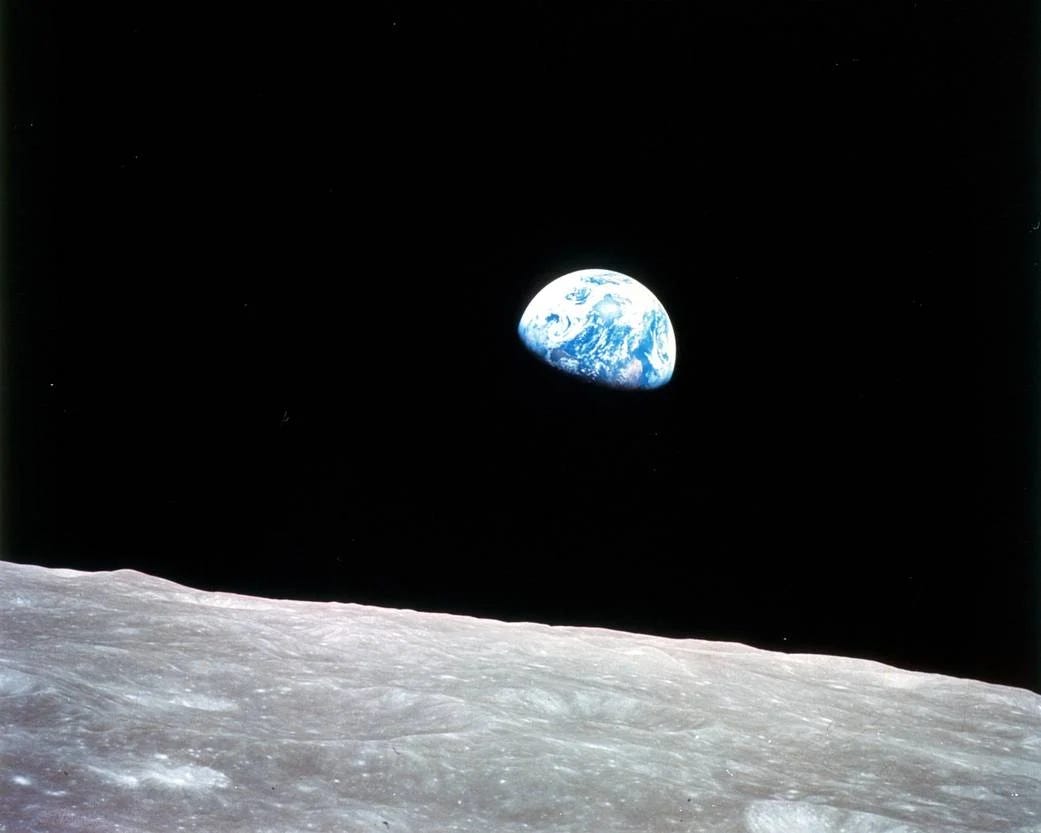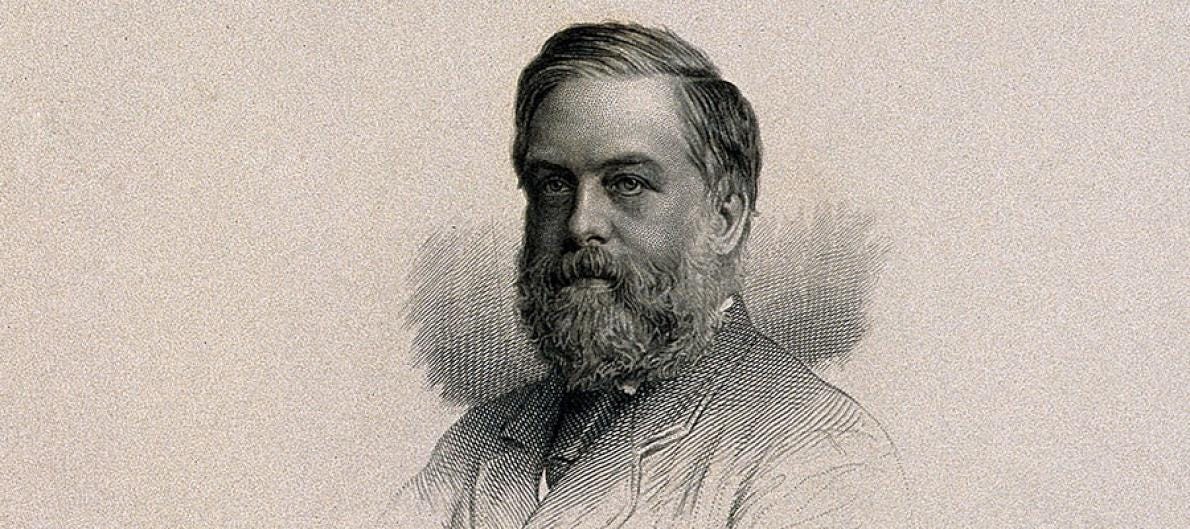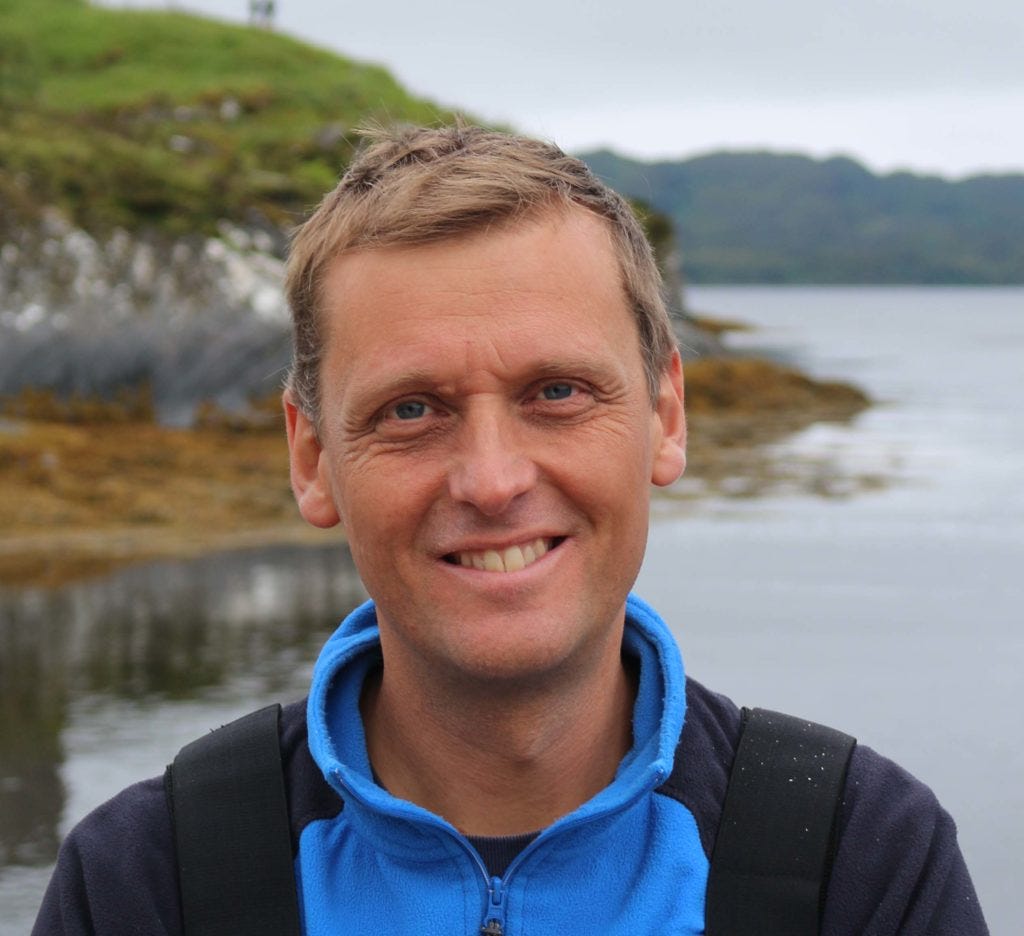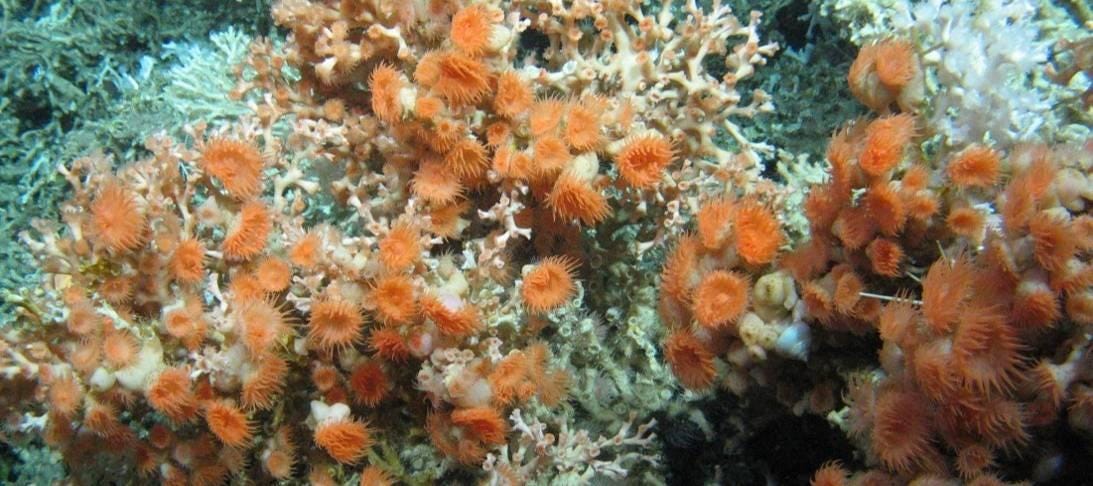'We've studied most vulnerable ecosystems in the deep Atlantic'
The city scientists carrying the mantle of Edinburgh's Father of Oceanography
It was winter 1968 in the northern hemisphere, but the seasons meant little out in the blackness of space. The crew of Apollo 8, the first manned spaceflight to enter lunar orbit, were about to reach the point of circling the moon where they would see home.
They would be the first humans to see the earth as it came into view from lunar orbit, and the crew of Frank Borman, Jim Lovell and William Anders were excited. Anders had his camera ready to take the photograph that was to become iconic as “Earthrise.”
As it came into view, he was so moved he exclaimed: “Oh my God, look at that picture over there! There’s the Earth comin’ up. Wow, is that pretty!” And he later added: “We came all this way to explore the Moon, and the most important thing is that we discovered the Earth.”
Less than a year later, the commander of Apollo 11 Neil Armstrong would become the first person to actually set foot on the moon. He was also dumbstruck by “the overview effect” of seeing his planet from space. “It suddenly struck me that that tiny pea, pretty and blue, was the Earth. I put up my thumb and shut one eye, and my thumb blotted out the planet Earth. I didn’t feel like a giant. I felt very, very small.”
That tiny band of space pioneers who have shared that incredible view have been struck by how small, and fragile the earth appears in the vastness of space. And how beautifully, uniquely blue it looks. The Blue Planet. And that is only because our ocean covers 70 per cent of the planet surface, and contains 324 million cubic miles of water, about 97 per cent of all the water on earth.
Today is World Oceans Day. The oceans are hugely important to our weather. The heat of the sun evaporates our water, adding moisture to the air, which then condenses and forms clouds which release rain. All life on earth depends on this water cycle. And yet, the cliché remains true. We know more about the surface of the moon than we know about our deep seas, the ocean floor.
But that is changing – and due in no small part to the extraordinary work over more than 200 years by the University of Edinburgh. The Father of Oceanography as we now know it, Sir Charles Wyville Thomson, was Professor of Natural History at the University of Edinburgh in the late 19th century. He led the Challenger expedition in the early 1870s which revolutionised the way we study our oceans and our understanding of the deep seas. The four-year expedition was charged to determine deep sea physical conditions including depth, temperature and ocean currents. Much of the information gathered by the Challenger Expedition is still used today. The space shuttle Challenger was named after HMS Challenger, the Royal Navy ship used for the expedition.
The work established the university’s reputation for studying the oceans – a reputation that continues to this day with Edinburgh deeply involved, and often leading, multi-nation and multi-university international research projects.
Professor Murray Roberts is Professor of Applied Marine Biology and Ecology in the School of Geosciences at the university. He also co-ordinated an extraordinary international co-operative scientific effort to learn more, much more, about the Atlantic Ocean through the EU funded Atlas and iAtlas projects, run over the past decade.
“Everyone knows how important it is to look after tropical rainforests and other precious habitats on land, but few realise there are just as many, if not more, special places in the ocean. In ATLAS we've studied most vulnerable ecosystems in the deep Atlantic and we now understand how important, interconnected and fragile they really are.”
Atlas looked at the North Atlantic, and involved more than 80 researchers from countries bordering the northern ocean. A total of 45 research expeditions took place, and led to the discovery of 12 new species, offered greater insights into biodiversity and improved understanding of the damaging impacts of climate change. It has also provided governments and industry with tools to help ensure the ocean’s resources are used more sustainably.
Professor Roberts said the work also showed that deep-sea ecosystems are under high risk. Large-scale Atlantic Ocean circulation – called the Atlantic Meridional Overturning Circulation - has slowed down exceptionally over the last 150 years due to climate change. Findings also suggest that ocean warming, acidification, and decreased food supply could drastically alter the availability and location of suitable habitats for habitat-forming cold-water corals and commercially important deep-sea fish in the near future.
iAtlas looked built further on this work and looked at the entire Atlantic ocean, from the tip of Argentina in the south to Iceland in the north, and from the east coasts of USA and Brazil to the western margins of Europe and Africa.
Professor Roberts, who was co-ordinator of the project over it ten years, said: “In all 188 scientists from around the world have taken part in the project, and dozens of universities and research institutions. It was aimed at looking not only at how things are working and being affected out in the open oceans, beyond any nation’s jurisdiction, but at what we might be able to do and how we might bring that about.
“It was an extraordinary international effort, with enormous quantities of new data gathered and shared to the highest standards, and great credit must go to the EU for funding this project. The end of the project coincided with the signing of the High Seas Treaty last year, the UN international agreement which creates a more co-ordinated approach to conserving ocean biodiversity. A lot of our research fed into the negotiations around the Treaty.”
For a final meeting of those involved in the Atlas projects, 500 people came to Edinburgh for an conference at Dynamic Earth on how to manage the deep open ocean.
Two of the key issues looked at by the scientists engaged in the project were rising sea temperatures and acidification. “The oceans have absorbed more than 90 per cent of the excess heat from greenhouse gas emissions, acting as a buffer against climate change. However, this has come at a cost, and we are beginning to see an increasing impact on the oceans. The disrupted oceanic circulation, altering marine life migration patterns and affecting the complex web of life in the oceans.
“We are seeing traditional cold-water fish, caught commercially, being forced to migrate to colder waters while we are also seeing tropical fish expand out into the Atlantic. This has an impact on food security and potentially on nutrition. The tropicalisation of fish is changing the fish catch.”
The oceans are becoming more acidic as carbon dioxide from human activities is absorbed, and this is a significant threat to marine organisms, such as corals, including the deep-sea corals which Professor Roberts studies and which provide habitat for countless species.
“Before co-ordinating Atlas I would go to sea at least two or three times a year on research work, and now that the project has ended I am going back in the next few months west of Shetland to look at the impact of climate change on coral.
“In particular, our work has shown that the waters in that area show potential for encouraging the re-growth of corals, perhaps by using corals that have been growing in the legs of fossil fuel platforms.
“I am looking forward to going back. The work in our oceans goes on, and World Ocean Day is a great way to celebrate and highlight how incredibly important it is that we look after our oceans better, and to do that we need to understand what is happening.
“We found that people across the Atlantic want to see healthy deep-sea ecosystems for their children and grandchildren. The challenge for the next decade will be taking this new scientific and social understanding and using it to create better plans and policies for truly sustainable human activities in the ocean.”






